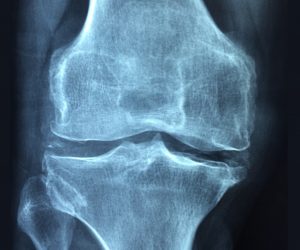
What Are the Recommendations to Prevent Obesity in Midlife Women?
Pooja Toshniwal Paharia via News-Medical – In a recent study published in Annals of Internal Medicine, researchers developed recommendations for counseling non-obese 40 to 60-year-old women with body mass index (BMI) values ≤29.9 kg/m2 for obesity prevention. The researchers were a part of the Women’s Preventive Services Initiative (WPSI) team and aimed to optimize long-term health, well-being, and function among midlife women.
Background
Obesity (BMI ≥30 kg/m2) is a common health condition among midlife women experiencing lifestyle and physiologic changes associated with aging and menopause. Obesity enhances the risk of chronic health conditions such as dyslipidemia, hypertension, diabetes mellitus type 2, stroke, coronary artery diseases, and all-cause deaths.
Obesity has also been causally associated with cancers involving several organs such as the breast, ovary, and endometrium. Studies have put forth guidelines based on the harms and benefits of weight management approaches for obese patients; however, obesity prevention recommendations for non-obese midlife women have not been developed.
About the Study
In the present study, WPSI team researchers developed recommendations to prevent obesity among middle-aged women based on a systematic review of the effectiveness and balance of benefits and harms of interventions to avoid obesity among midlife women.
The systematic review included randomized controlled trials (RCTs, n=7) comprising 51,638 women with BMI values ranging from normal to the overweight category. The trials comprised behavioral and counseling interventions to prevent obesity among women aged 40 to 60, obesity prevalence in the age group, the established harms of being obese, and the minimal anticipated harms of counseling.
The included studies compared women who received behavioral strategies to prevent weight gain to those who received none or minimal intervention. The studies that included men or underweight, expecting, or postpartum women were excluded from the analysis. The WPSI team used an indirect chain of evidence to develop the recommendations.
Results
Out of seven RCTs, four of the women found statistically significant weight loss of 0.9 to 2.5 kg in favor of moderate-intensity to high-intensity counseling interventions versus control interventions. However, one counseling study and two exercise intervention studies did not show differences. Out of two RCTs, one study reported improved quality-of-life (QoL) measures.
Only two studies described the negative effects of exercise or counseling interventions. Measures of stress or depression were not elevated with behavioral counseling in one study. Self-reported percentages of falls (37% versus 29%) and injuries (19% versus 14%) were greater with exercise counseling in one study comprising previously inactive women.
The trial findings indicated favorable and statistically significant weight changes compared to controls in four (out of five) behavioral counseling RCTs (average differences in weight ranging between −0.9 kg and −2.5 kg for intervention groups compared to controls) but not in two exercise RCTs. Few harms from counseling and behavioral interventions were reported. Differences in QoL measures were not conclusive in two RCTs. The evidence from included RCTs was of moderate quality for the efficacy of weight management interventions and low quality for related harms.
The WPSI recommended physical exercise and diet assessments, with counseling tailored to every individual for physical exercise and healthy eating for overweight patients with elevated BMI values and physically inactive patients consuming unhealthy meals. The WPSI mentioned that counseling can be performed during health check-ups, and higher intensity interventions, including appropriate referrals, could be used for improving weight outcomes.
Furthermore, factors potentially affecting health outcomes such as trauma, socioeconomic status, and chronic stress must be considered for counseling. Counseling efforts must also consider cultural body image considerations, weight stigma, individual body compositional variability, leisure time, space accessibility for physical exercise, childcare, healthy food availability, and finances.
The efficacy of RCTs of behavioral interventions for weight management among midlife women was limited and demonstrated small magnitudes of effect. Most RCTs included short-term evaluations, and thus, an optimal approach for obesity prevention could not be established. However, several interventions with varying frequency, intensity, and duration and even modest weight loss (three to five percent) showed meaningful health benefits. The reported weight loss levels were similar to those of trials underpinning the USPSTF (United States preventive services task force) recommendations.
Conclusions
Based on the systematic review findings and the growing obesity burden in midlife women, the WPSI recommended that midlife women with normal or elevated BMI must receive counseling for obesity prevention. The recommendations are an extension of the existing USPSTF level C recommendations by expanding counseling of non-obese adult populations without cardiovascular risk factors to individualized decisions and referrals for normalizing healthy diet, physical exercise, and behavioral counseling for all the eligible non-obese women in primary care settings.
Behavioral counseling may prevent weight gain in midlife women and cause modest loss of weight without any harm. However, future studies must elucidate the most effective weight management approaches. The recommendations could improve coverage of clinical preventive health services, guide clinical practice and mitigate weight stigma concerns.
To read the original article click here.






